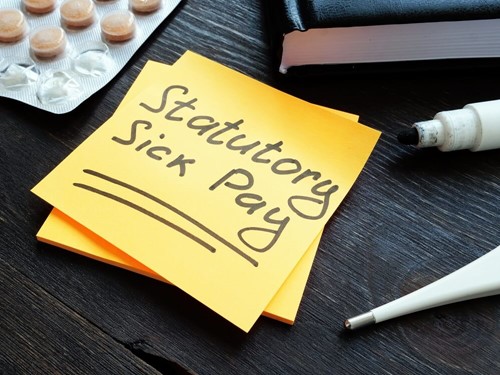In the build up to Christmas last year the Government announced its decision to extend the time period employees can self-certify for sick leave.
Previously, an employee could be absent from work due to sickness for seven days before needing to provide medical evidence. Now however, staff only have to provide evidence after 28 days of absence.
How long does this rule last? What are the long-term implications? How can you manage absence during this time?
We’ll answer all of these questions here…

New fit note rules
Why the change?
With the number of Omicron variant cases at record levels in the UK, the NHS is facing immense pressure. The fit note measure was introduced to try and help relieve some of that pressure over the winter period.
Currently, the change is set to end on 26th January 2022. There is currently no indication that this deadline will be altered.
Issues for Employers
The biggest concern for an employer might be that an employee can take most of January off sick without a doctor’s note. Unfortunately, this could be the case. It’s also possible that this issue could extend into February.
If an employee began their sickness absence on 26th January, for example, the 28-day rule would still apply. This means, only employees who begin their absence after this date must provide a fit note within the ordinary timeframe.
You could choose to pay for a fit note from a private medical provider. However, this is a costly option for a short period time. It may also be subject to delays.
The two main issues that you may face as an employer are the following:
- Paying full company sick pay
- Staff complaints if choosing to pay SSP
As a reminder, if an employee is too sick to work, you must pay them £96.35 per week in statutory sick pay (SSP) for up to 28 weeks. You begin payments after for days in a row (including non-working days). If you only offer SSP, you must continue to pay that rate. However, if you pay company sick pay (CSP) you may also need to pay this, depending on your contracts.
If you do choose to withhold any non-statutory payments, make sure you do this fairly, as this could result in a discrimination claim. If you need further advice on how to manage this scenario, seek independent HR advice.

How to manage sickness absence
Communication is key. Make sure employees are aware that this is a temporary measure that comes to an end on 26th January. After that, normal rules apply, and you should remind staff that you will require fit notes following this date.
One of the best methods of managing sickness absence usually involves the right amount of communication. This means checking in at regular intervals and discussing what you can do to help the employee back into the workplace.
For long term management of sickness absence, consider using the Bradford Factor to monitor the impact on your business.
One potential resolution to the CSP issue, is postponing enhanced payments until a sick note is received following 28 days of absence. However, this isn’t a method we’d recommend, as it could result in significant issues. For example, an employee could only be absent for two weeks, but lose out on CSP through no fault of their own if they’re unable to arrange a GP appointment.
This could end in numerous tribunal claims, so think carefully before considering this route.
If you’re uncertain about your contracts, or are unsure how to handle your policies to ensure no discrimination occurs, speak to an HR expert…
Get free independent HR advice
Our consultants are CIPD-qualified industry experts with a wealth of HR and employment law knowledge and experience. You can receive advice from them 24/7 and support from our documentation and legal teams too.
To get your free initial advice, call today on 01455 858 132.
Related resources
Categories
- Business Advice
- Contracts & Documentation
- Culture & Performance
- Disciplinary & Grievances
- Dismissals & Conduct
- Employee Conduct
- Employment Law
- End of Contract
- Equality & Discrimination
- Health & Safety
- Hiring & Managing
- Leave & Absence
- Managing Health & Safety
- Moving
- Occupational Health
- Pay & Benefits
- Recruitment
- Risk & Welfare





